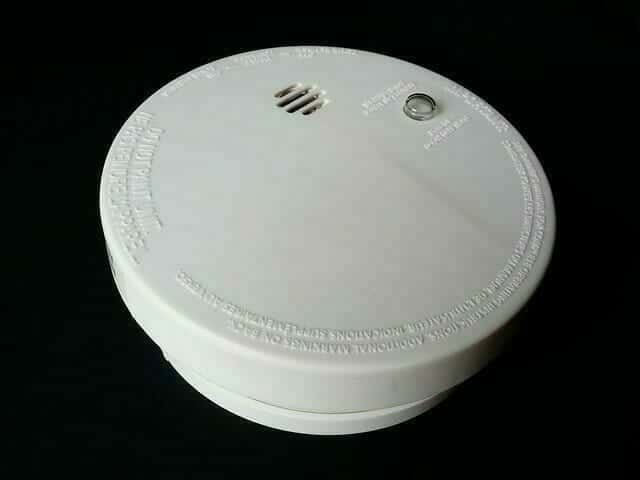Kidde Smoke Alarm Going Off for No Reason: Troubleshooting Tips
✅Kidde smoke alarm going off? Check for dust, low battery, or humidity. Reset and test the alarm. Safety first! Troubleshooting tips to ensure peace of mind.
If your Kidde smoke alarm is going off for no apparent reason, it can be both alarming and frustrating. There are several potential causes for false alarms, ranging from environmental factors to technical issues within the device itself. Understanding these causes and knowing how to troubleshoot them can help you maintain a safe and functional home environment.
In this article, we will explore the common reasons why your Kidde smoke alarm might be sounding a false alarm and provide detailed troubleshooting tips to address the issue. Whether it’s due to dust accumulation, low battery, or environmental factors, we’ve got you covered with practical solutions to keep your smoke alarm in optimal condition.
Common Causes of False Alarms in Kidde Smoke Alarms
Before diving into the troubleshooting steps, it’s important to understand some of the common causes that might trigger a false alarm:
- Dust and Debris: Dust particles can accumulate inside the alarm, causing it to go off unexpectedly.
- Steam and Humidity: High levels of steam or humidity, such as from a bathroom or kitchen, can trigger the alarm.
- Low Battery: A low battery can result in the alarm chirping intermittently, which might be mistaken for a false alarm.
- Cooking Smoke: Smoke from cooking, particularly from burning food, can set off the alarm.
- Insects: Small insects can find their way into the alarm and cause it to go off.
Troubleshooting Tips
Here are detailed steps to troubleshoot and resolve the issue of your Kidde smoke alarm going off without a clear reason:
1. Clean the Smoke Alarm
Dust and debris are common culprits for false alarms. Follow these steps to clean your smoke alarm:
- Turn off the power to the alarm at the circuit breaker.
- Remove the alarm from its mounting bracket.
- Use a vacuum cleaner with a soft brush attachment to gently remove dust and debris from the unit’s exterior and interior.
- Wipe the alarm with a dry cloth.
- Reattach the alarm and restore power.
2. Check and Replace the Battery
If the alarm is chirping intermittently, the battery might be low. Follow these steps to replace it:
- Remove the alarm from its mounting bracket.
- Open the battery compartment and remove the old battery.
- Insert a new battery, ensuring it is properly connected.
- Test the alarm by pressing the test button.
- Reinstall the alarm and ensure it is securely attached.
3. Relocate the Smoke Alarm
If your smoke alarm is located near a kitchen or bathroom, steam and cooking smoke can trigger false alarms. Consider relocating the alarm to a different area:
- Identify a new location that is at least 10 feet away from kitchens and bathrooms.
- Follow the manufacturer’s instructions to install the alarm in the new location.
4. Inspect for Insects
Insects can sometimes get inside the alarm and trigger it. Follow these steps to inspect and remove any insects:
- Turn off the power to the alarm.
- Remove the alarm from its mounting bracket.
- Inspect the interior of the alarm for any insects or nests.
- Use compressed air to blow out any insects.
- Reattach the alarm and restore power.
5. Reset the Smoke Alarm
If all else fails, try resetting the smoke alarm:
- Turn off the power to the alarm at the circuit breaker.
- Press and hold the test button for 15-20 seconds.
- Release the button and wait for the alarm to reset.
- Restore power to the alarm.
By following these troubleshooting tips, you can address the issue of your Kidde smoke alarm going off for no reason and ensure that your home remains safe and protected.
Common Causes of False Alarms in Smoke Detectors
Common Causes of False Alarms in Smoke Detectors
Dealing with false alarms in smoke detectors can be frustrating and concerning, especially when they seem to go off for no reason. Understanding the common causes behind these false alarms can help you troubleshoot the issue effectively.
Here are some common reasons why your smoke alarm might be going off without any actual danger present:
1. Dust and Debris Buildup:
Over time, dust and other debris can accumulate in your smoke detector, leading to false alarms. Regularly cleaning your smoke alarm with a soft brush or vacuum can help prevent this issue.
2. High Humidity:
High levels of humidity in certain areas of your home, such as the bathroom or kitchen, can trigger false alarms in smoke detectors. Consider installing a humidity sensor in these areas to help regulate moisture levels.
3. Smoke from Cooking:
Smoke and steam produced during cooking can set off smoke alarms, even if there is no fire present. To prevent false alarms while cooking, ensure proper ventilation in the kitchen and avoid excessive smoke production.
By addressing these common issues, you can reduce the likelihood of false alarms in your smoke detectors and ensure that your home remains safe and secure.
How to Properly Maintain Your Kidde Smoke Alarm
To ensure the proper functioning of your Kidde smoke alarm and prevent it from going off for no reason, it is essential to perform regular maintenance. Follow these troubleshooting tips to keep your smoke alarm in optimal condition:
1. Test Your Alarm Regularly
Regular testing of your Kidde smoke alarm is crucial to verify that it is working correctly. Press the test button on the alarm at least once a month to ensure it emits a loud sound. If the sound is weak or if the alarm does not sound at all, replace the batteries immediately.
2. Clean the Alarm Frequently
Dust and debris can accumulate in your smoke alarm and interfere with its sensors. Use a soft brush or vacuum to clean the alarm at least every six months. This will help maintain the alarm’s sensitivity and reliability.
3. Replace Batteries Annually
Old or weak batteries can cause your smoke alarm to malfunction. It is recommended to replace the batteries in your Kidde smoke alarm annually. Choose high-quality alkaline batteries to ensure longevity and reliable performance.
4. Keep the Alarm Area Clean
Obstructions around your smoke alarm can prevent it from detecting smoke effectively. Make sure to keep the area around the alarm clear of dust, cobwebs, and other obstacles. This simple step can improve the alarm’s efficiency.
By following these maintenance tips, you can proactively prevent false alarms and ensure your Kidde smoke alarm is ready to alert you in case of a real emergency. Remember, a well-maintained smoke alarm can save lives.
Frequently Asked Questions
Why is my Kidde smoke alarm going off for no reason?
There could be various reasons, such as a dirty sensor, low battery, or high humidity.
How can I stop my Kidde smoke alarm from false alarming?
Try cleaning the sensor, replacing the battery, and ensuring proper placement away from steamy areas.
How often should I replace the battery in my Kidde smoke alarm?
It is recommended to replace the battery at least once a year or when the low battery chirp is heard.
Can I silence my Kidde smoke alarm temporarily?
Yes, most Kidde smoke alarms have a hush button to silence the alarm temporarily.
What should I do if my Kidde smoke alarm keeps chirping after replacing the battery?
Check if the battery is installed correctly and securely. If the issue persists, contact Kidde customer service for assistance.
How long do Kidde smoke alarms typically last?
Kidde smoke alarms generally have a lifespan of about 10 years before needing to be replaced.
Key Points and Tips for Kidde Smoke Alarms
- Regularly test your Kidde smoke alarm to ensure it is functioning properly.
- Keep the smoke alarm clean from dust and debris to prevent false alarms.
- Place smoke alarms in bedrooms, hallways, and common areas for maximum coverage.
- Replace the entire smoke alarm unit every 10 years, even if it seems to be working fine.
- Check and replace the battery in your Kidde smoke alarm annually to ensure it is always powered.
Feel free to leave your comments below with any additional questions or tips for dealing with Kidde smoke alarms. Don’t forget to check out our other articles for more helpful information!







